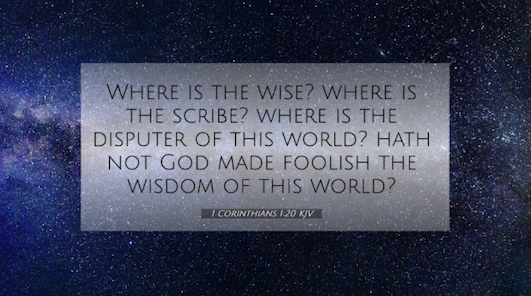
Wouldn’t it be wonderful if we could design God the way we would like? You know, take out the confusing parts, sand off the rough edges of judgment, and fill Him with the fluff of goodness that always gives us a hall pass for our personal wants and wishes.
What do you think? A Santa Claus god? A genie in a bottle god?
I wrestle with this, because there are times, even to this day, where I don’t always “get” the God of the Bible. I don’t like the messiness of God-sanctioned war in the Old Testament. I’m uncomfortable with God “zapping” someone because he failed to carry the Ark of the Covenant according to the manual (2 Samuel 6:6-7). I still get befuddled over the whole point of blood sacrifice and the atonement.
Now, don’t get me wrong. I’ve studied these issues and others like them for decades, and I have my go-to answers that I would put up against any atheist’s jabs. But let’s be honest. Even with an air-tight defense of God’s sovereignty and the Bible’s inerrancy, there’s still an element of mystery when it comes to He Who Is Almighty.
And shouldn’t there be? After all, He is . . . God.
C. S. Lewis knew that the God of the Bible is not always the god we would design for ourselves. He wrote:
Reality, in fact, is usually something you could not have guessed. That is one of the reasons I believe Christianity. It is a religion you could not have guessed. If it offered us just the kind of universe we had always expected, I should feel we were making it up. But, in fact, it is not the sort of thing anyone would have made up. It has just that queer twist about it that real things have. So let us leave behind all these boys’ philosophies—these over simple answers. The problem is not simple and the answer is not going to be simple either (Mere Christianity, 33).
Aren’t we grateful that God doesn’t fit neatly in our little theological boxes and that His ways are higher than our ways and His thoughts than our thoughts (Isaiah 55:9)? Indeed, if God could be reduced to our manageable axioms and dictums, then surely, we would want to invent a god who couldn’t.
Something within us affirms the reality of the God who has revealed Himself to us and is knowable, and yet is also the mysterious great Beyond. The next time you have a pretty big problem, it’s good to know we have a pretty big God who is greater than the problem and who is present to lead us through.
“Where is the one who is wise? Where is the scribe? Where is the debater of this age?
Has not God made foolish the wisdom of the world?” (1 Corinthians 1:20, ESV).
